Recently I read Outliers: The Story of Success by Malcolm Gladwell. In it he points out that Japanese children attend school for 243 days each year, while the average school year in the USA is 180 days.
In addition, he cites tests that show that the academic difference between students from lower income families and those from higher income families, has little to do with the schools they attend, but rather is a result of how they spend their summers. Higher income families take their children on vacations, enroll them in summer camps and encourage them to participate in reading programs, while low income students are usually left to just “hang out” in their neighborhood with friends. The result is that the latter students when tested at the beginning of the next school year will actually show a decrease in academic achievement on tests, while the former will have a significant increase. During the school year all students will improve at roughly the same rate, which shows how important the summer vacation is in our children’s educations.
My oldest children and I are teaching film / computer classes this summer – this gives them the opportunity to develop skills of producing training material, marketing the classes and of course teaching. And hopefully we will be helping the students who attend explore new subjects. If you live in Knoxville, take a look at Knoxville Summer Camps to see what we are offering.
We have just returned from a trip to New Mexico. As we roadtripped through about 10 states to get there and back, it was a great time of informal geography learning. In addition, we went geocaching in Santa Fe (the city has a challenge set up) which taught my kids new mapwork skills. And of course geocaching is done outside, so it is perfect for summer. It is fairly easy to make Geography Fun – click the link for many cool ideas.
Our family loves board games, and summer is a great time to play more of them. Invest in a few new ones that are both fun and have some educational value. You can find geography related ones at States and Capitals Games. And you can also find CD Rom and online games there – which are other activities kids will enjoy – and learn from.
Of course you need to be sure your kids have enough time to just have fun with friends and have plenty of unstructured ‘playtime’, but do keep in mind that it is important to make sure that your kids keep learning – even during the vacation!
Photos from Wikimedia Commons by Nicubunu and Flickr by mda621.
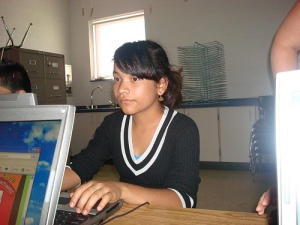
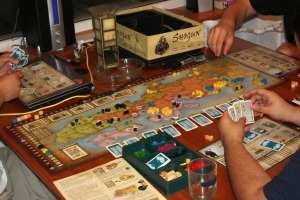



 Posted by merylvdm
Posted by merylvdm 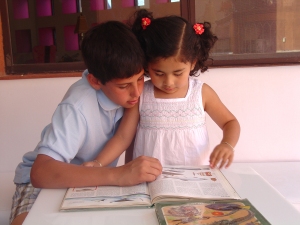
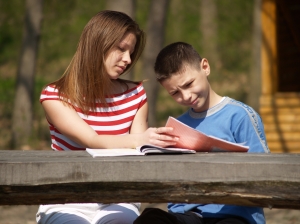
 My son’s topic for speech class this week, was to describe some need in the world today. He chose to speak on the need for Americans to be more culturally aware. As the world becomes more and more a ‘global village’, the need for us all to know more about our ‘neighbors’ in other countries increases. So, how do we teach this to our kids?
My son’s topic for speech class this week, was to describe some need in the world today. He chose to speak on the need for Americans to be more culturally aware. As the world becomes more and more a ‘global village’, the need for us all to know more about our ‘neighbors’ in other countries increases. So, how do we teach this to our kids? I learned about 2 new contests today:
I learned about 2 new contests today: One of my sons had to take the BJU Writing Evaluation yesterday – so writing is on my mind. Teaching a child to write well is one of the hardest things I have had to do. If you are hoping I am going to give a foolproof method of doing it, sorry. I can’t. All I can do is share with you some things that have worked with my kids:
One of my sons had to take the BJU Writing Evaluation yesterday – so writing is on my mind. Teaching a child to write well is one of the hardest things I have had to do. If you are hoping I am going to give a foolproof method of doing it, sorry. I can’t. All I can do is share with you some things that have worked with my kids: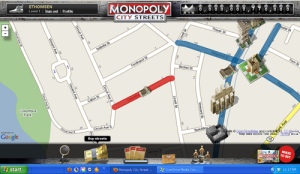
 Homeschooling can get pricey – especially if you have a few children. We all know we can look on Amazon and eBay for resources, but here are 5 other places I use regularly:
Homeschooling can get pricey – especially if you have a few children. We all know we can look on Amazon and eBay for resources, but here are 5 other places I use regularly:
